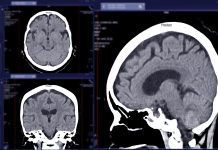Although age is a risk factor, there are other modifiable factors that can influence dementia risk and disease progression. Angela Bradshaw, the Director for Research at Alzheimer Europe, emphasises the need for more comprehensive interventions across multiple areas to support dementia prevention
Over 20% of the EU population is currently aged 65 or older (Eurostat, 2024). With an aging population in Europe, dementia is becoming one of the region’s most pressing public health concerns. In 2019, Alzheimer Europe estimated that approximately nine million people were living with dementia across the continent. By 2050, this number is projected to nearly double to 19 million. Globally, the figure stands at over 55 million.
While age is the greatest known risk factor for developing dementia, dementia is not a normal part of aging. Dementia is a progressive, neurodegenerative condition, with symptoms including memory loss, confusion, problems with language and understanding, and changes in behaviour. Dementia also has wider impacts on families, caregivers, health and social care systems: the annual cost of care for a person with dementia in Europe ranges from €8,000 to €70,000 (Jonsson et al, 2023). There is an urgent need for actions to ensure people affected by dementia can access the care, treatment and support they need to live a life with meaning and dignity.
Alongside improving care and support for those already affected by dementia, there is growing interest in the possibility of preventing, delaying or slowing dementia.
The scientific case for risk reduction
Only around 2% of people with Alzheimer’s disease, the most common cause of dementia, develop the disease due to inherited genetic mutations. Growing evidence indicates that lifestyle, environmental, and social factors may play a causative role. According to the 2024 Lancet Commission on Dementia Prevention, Intervention and Care, up to 45% of future dementia cases could potentially be prevented by addressing 14 key risk factors across the life course (Livingston et al., 2024). These include hypertension, hearing loss, low education, social isolation, air pollution, obesity, smoking, depression, diabetes, high cholesterol and untreated late-life vision loss.
When the report was published, Jean Georges, Executive Director of Alzheimer Europe, stated: “Alzheimer Europe welcomes this updated report and the hopeful message that nearly half of all future dementia cases could potentially be prevented. The organisation calls on national governments to include these findings in their local public health and risk reduction campaigns. As some of the risk factors originate at the societal level, large-scale policy changes are necessary to seize the full potential of risk mitigation and prevention.” Interestingly, new evidence from the DelpHi-MV trial shows that addressing modifiable risk factors can also slow the progression of symptoms in people with dementia (Blotenberg et al, 2025). Overall, these studies show that risk reduction is not just a preventive strategy – it is a powerful tool that can benefit everyone, including those already living with dementia.
Making research a reality
The Finnish Geriatric Intervention Study to Prevent Cognitive Impairment and Disability (FINGER) has become a global model for multi-domain dementia prevention. The trial demonstrated that simultaneous intervention in nutrition, exercise, cognitive training, and cardiovascular risk reduction could slow cognitive decline in older adults at risk of dementia (Ngandu et al., 2015). Today, the World-Wide FINGER network counts research teams based in 70 different countries. These coordinated studies target diverse populations, including people with cardiovascular disease, limited education, or a family history of dementia – bringing prevention science closer to practice.
At the European level, the Innovative Health Initiative-funded AD-RIDDLE project is working to integrate early detection, timely diagnosis and personalised prevention into different healthcare settings. The project is launching a real-world study across multiple countries and health systems, bringing risk reduction closer to communities in Finland, Italy, the Netherlands, Sweden and the UK.
National initiatives like Luxembourg’s Programme Démence Prévention (PDP) further illustrate how precision prevention can be implemented in practice. Coordinated by the Centre Hospitalier de Luxembourg, partnering with national Alzheimer associations, and with funding from the Luxembourgish Ministry of Health, PDP targets people with mild cognitive impairment. It offers a wide range of cognitive training, physical and social activities, nutrition and psychological counselling tailored to individual needs. Participants are followed up annually, helping to build the evidence base for dementia prevention in the community.
Stigma and the need for ethical risk communication
Despite these advances, stigma about dementia remains widespread. According to the 2024 World Alzheimer Report, 80% of the public still believe dementia is a normal part of ageing. This misconception reduces help-seeking behaviour, discourages lifestyle change, and hinders early diagnosis.
A recent letter in The Lancet Healthy Longevity calls for a more inclusive and sensitive approach to public messaging on dementia risk. The authors argue that while awareness of modifiable risk factors is growing, some public health messages imply personal responsibility in ways that can unintentionally stigmatise people living with dementia.
This is also a concern for Alzheimer Europe. In our 2023 Position on risk disclosure, we emphasised that risk should be communicated in clear and accessible terms, with careful consideration of psychological and social impacts. People must receive evidence-based guidance that respects their values, circumstances, and preferences.
Policies to promote dementia prevention
The scientific case for dementia prevention is stronger than ever. To maximise impact, greater efforts are now needed to translate research into public health strategies and risk reduction policies. The 2024 Lancet Commission recommends several measures to mitigate dementia risk. In addition to ensuring high-quality education for everyone and taking necessary actions to limit air-pollution exposure, the Commission recommends that hearing aids and eye tests be made accessible for all. On an individual level, treating depression, hypertension, high cholesterol, obesity and diabetes is recommended, as is the cessation of smoking and the reduction of alcohol consumption.
Although Alzheimer Europe supports the conclusions of the Commission, the organisation also emphasises the importance of honest, empathetic and compassionate risk disclosure. In addition, greater representativeness of prevention research studies is needed to ensure applicability of their findings across diverse populations and groups.
As the evidence base for dementia prevention grows, it is now essential to embed these findings into national public health strategies, clinical guidelines, and prevention programmes that are adequately resourced, evidence-based, and accessible across geographies, communities and cultures.








